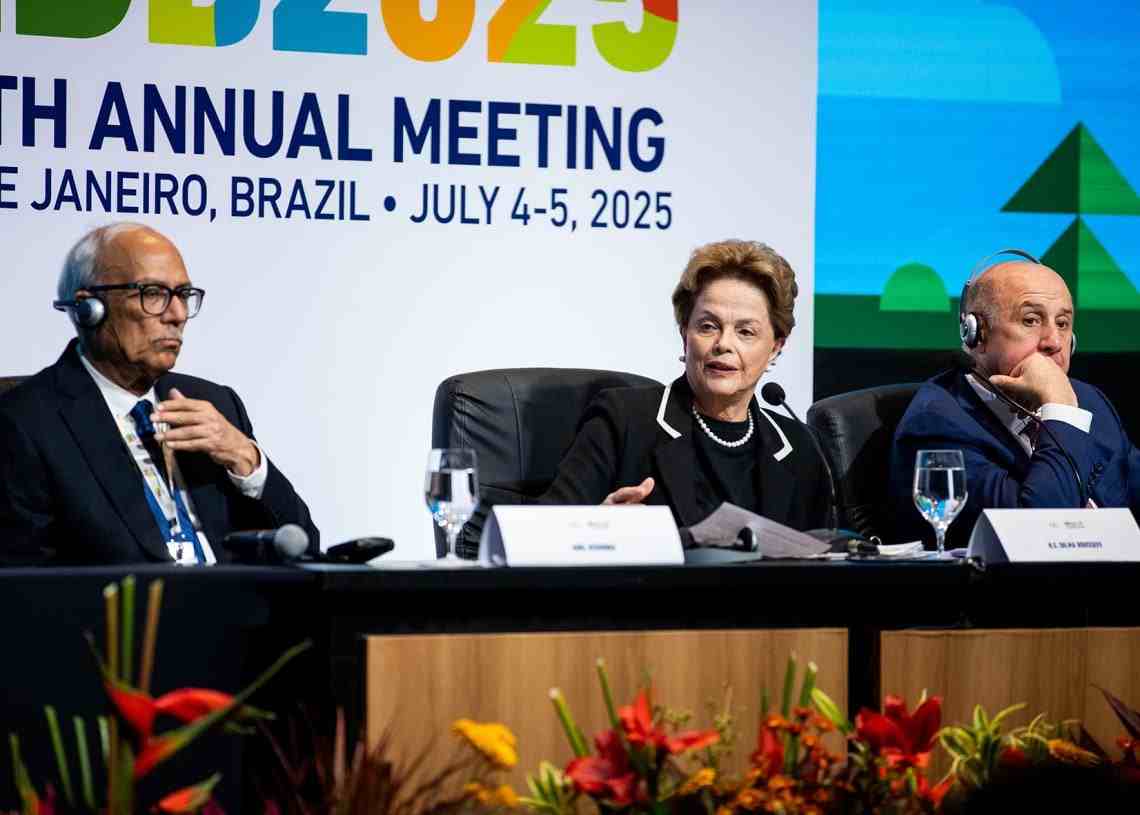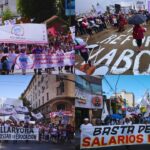
Countries that make up BRICS released on Monday, 7, a joint statement in which they pressed the nations developed to increase their financial contributions in coping with climate change.
The group requires the fulfillment of the financing goals set in the so -called “Baku Way Map to Belém”, which foresees the mobilization of US $ 1.3 trillion until November, when COP30 will be held.
The document was approved during the BRICS leaders summit in Rio de Janeiro, and points out failures in the execution of the commitments made by rich countries in the period prior to 2020. According to the text, these flaws compromise global climate goals.
“We express serious concern with ambition and implementation gaps in the mitigation efforts of developed countries in the period prior to 2020. We urgently set up such gaps, to review and strengthen the goals for 2030 in their nationally determined contributions (NDCs) and to reach zero gee emissions of gee [gases do efeito estufa] Significantly before 2050, preferably until 2030, and negative net emissions immediately after, ”says the statement.
The BRICS argues that climate financing should be led by the historically contributed nations to carbon emissions. Group countries recognize that there are common goals, but they point out that responsibilities must be differentiated according to the economic capacity of each state.
The text also points out that the international financial system has sufficient capital to respond to the climate crisis, but that resources are distributed unevenly. The group criticizes mechanisms that increase the debt of developing countries as a condition for receiving resources.
“We emphasize that adaptation financing must be primarily detention, based on donations and accessible to local communities, and should not substantially increase the indebtedness of developing economies,” says another excerpt from the statement.
BRICS countries recommend that public resources from developed countries be directed to funds linked to the United Nations Convention on Climate Change (UNFCC), including the Green Climate Fund (GCF), the Global Environment Fund (GEF), the Adaptation Fund, the Loss and Damage Response Fund (FRLD), the fund for less developed countries and the Special Climate Change Fund.
In addition to public capital, leaders highlighted the importance of attracting private investments. To this end, they advocate the use of mixed financing, with instruments that combine public and private resources, expanding the impact and predictability of financial support.
Among the proposals submitted, BRICS mentioned the Forest Forests Forests Forever (TFFF), an initiative scheduled for official launch during COP30.
“We emphasize that the Forest Forests Forest Forever (TFFF), proposed for launching at COP30, has the potential to be a promising instrument of mixed finance, capable of generating predictable and long -term financing flows for the conservation of standing forests,” says the text.
The group also positioned itself over the carbon market. Countries have committed to cooperating in the development of mechanisms aimed at the private sector, considering them relevant to encourage sustainable practices. The idea is to share experiences and align regulatory models to strengthen acting in environmental initiatives.
The national planning of climate policies was also cited. Nationally determined contributions (NDCs) were classified as the main instrument of each country to present goals and mitigation and adaptation strategies.
At another point in the document, the BRICS countries condemn unilateral protectionist measures adopted under environmental justification. The group considers that these mechanisms have a negative impact on developing countries and may impair collective efforts to reduce deforestation.
Examples are cited as carbon adjustment mechanisms at the borders (CBAMs), legal requirements with commercial effects and other instruments considered discriminatory. The group states that such measures represent barriers to international trade and do not effectively contribute to climate objectives.
The declaration reaffirms BRICS support for Multilateralism and the central role of the UNFCC and the Paris Agreement as legitimate platforms for international cooperation in combating climate change. The mobilization around the financial goals will be accompanied until COP30, scheduled for November, in Belém (PA).
Source: https://www.ocafezinho.com/2025/07/07/brics-cobra-valor-trilionario-aos-paises-ricos-para-financiamento-climatico-ate-a-cop30/

